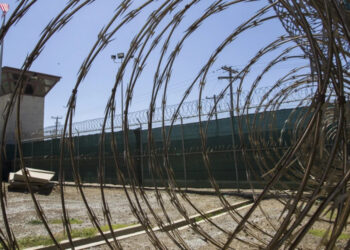![]() Follow Us on Google News
Follow Us on Google News
WASHINGTON: As Republicans in the House, fueled by hard-right demands for deep cuts, force a confrontation over federal spending, allies of Speaker Kevin McCarthy implored their Republican colleagues Saturday to drop their hardline tactics and work together to approve a conservative spending plan to prevent a federal shutdown that, if happens, will disrupt many services, squeeze workers and roil politics.
In public overtures and private calls, Republican lieutenants of the embattled speaker pleaded with a handful of right-flank holdouts to resist further disruptions that have ground the House to a halt and back McCarthy’s latest plan to keep government open before next weekend’s Sept. 30 deadline for a shutdown.
While some government organizations would be exempt—for instance, Social Security payments will still be issued—other services will be drastically reduced. All non-essential activities by government agencies will cease, and millions of federal workers, including military personnel, won’t get paid.
What’s government shutdown?
A shutdown happens when Congress fails to pass some type of funding legislation that is signed into law by the president. Lawmakers are supposed to pass 12 different spending bills to fund agencies across the government, but the process is time-consuming. They often resort to passing a temporary extension, called a continuing resolution or CR, to allow the government to keep operating.
Who does a shutdown affect?
Millions of federal workers face delayed paychecks when the government shuts down, including many of the roughly 2 million military personnel and more than 2 million civilian workers across the nation.
Nearly 60% of federal workers are stationed in the department of Defense, Veterans Affairs and Homeland Security.
Federal workers are stationed in all 50 states and have direct interaction with taxpayers — from Transportation Security Administration agents who operate security at airports to Postal Service workers who deliver mail.
Some federal offices will also have to close or face shortened hours during a shutdown.
Beyond federal workers, a shutdown could have far-reaching effects on government services. People applying for government services like clinical trials, firearm permits and passports could see delays.
Businesses closely connected to the federal government, such as federal contractors or tourist services around national parks, could see disruptions and downturns. The travel sector could lose $140 million daily in a shutdown, according to the U.S. Travel Industry Association.
How to end a shutdown?
It’s the responsibility of Congress to fund the government. The House and Senate have to agree to fund the government in some way, and the president has to sign the legislation into law.














![Amazon employees load packages on carts at a delivery station in South Gate, California, on July 16, 2024 [Richard Vogel/AP Photo]](https://mmnews.tv/wp-content/uploads/2024/12/Amazon-workers-350x250.jpg)
















